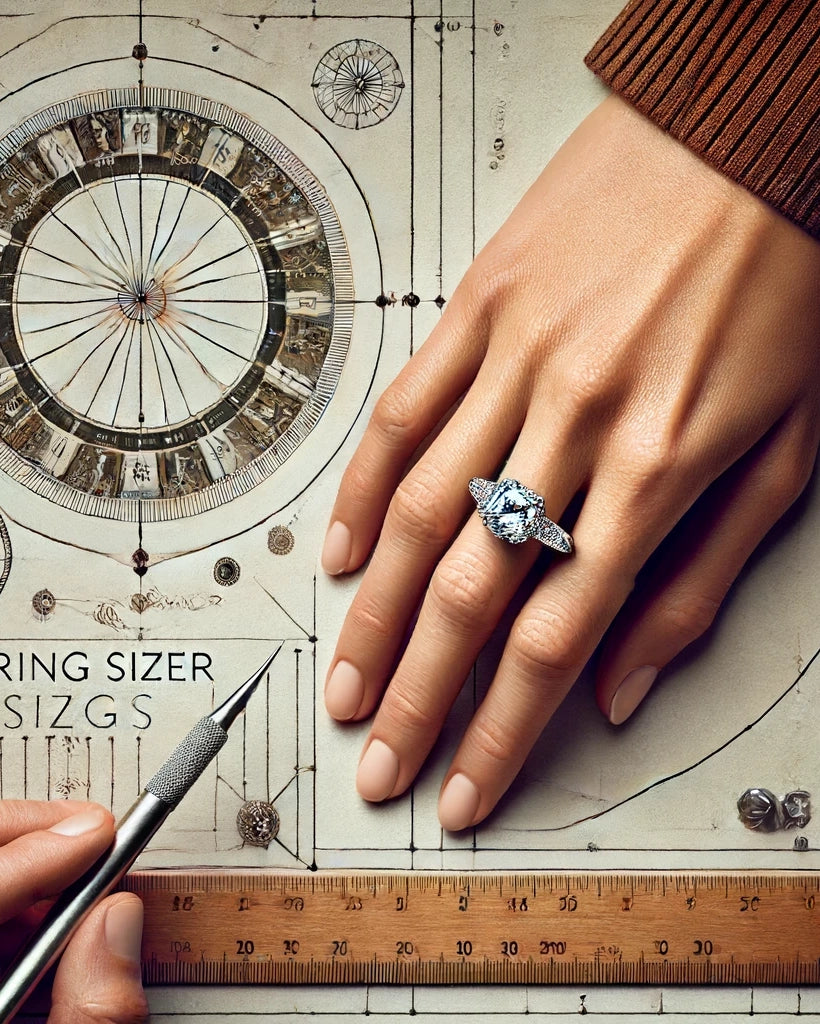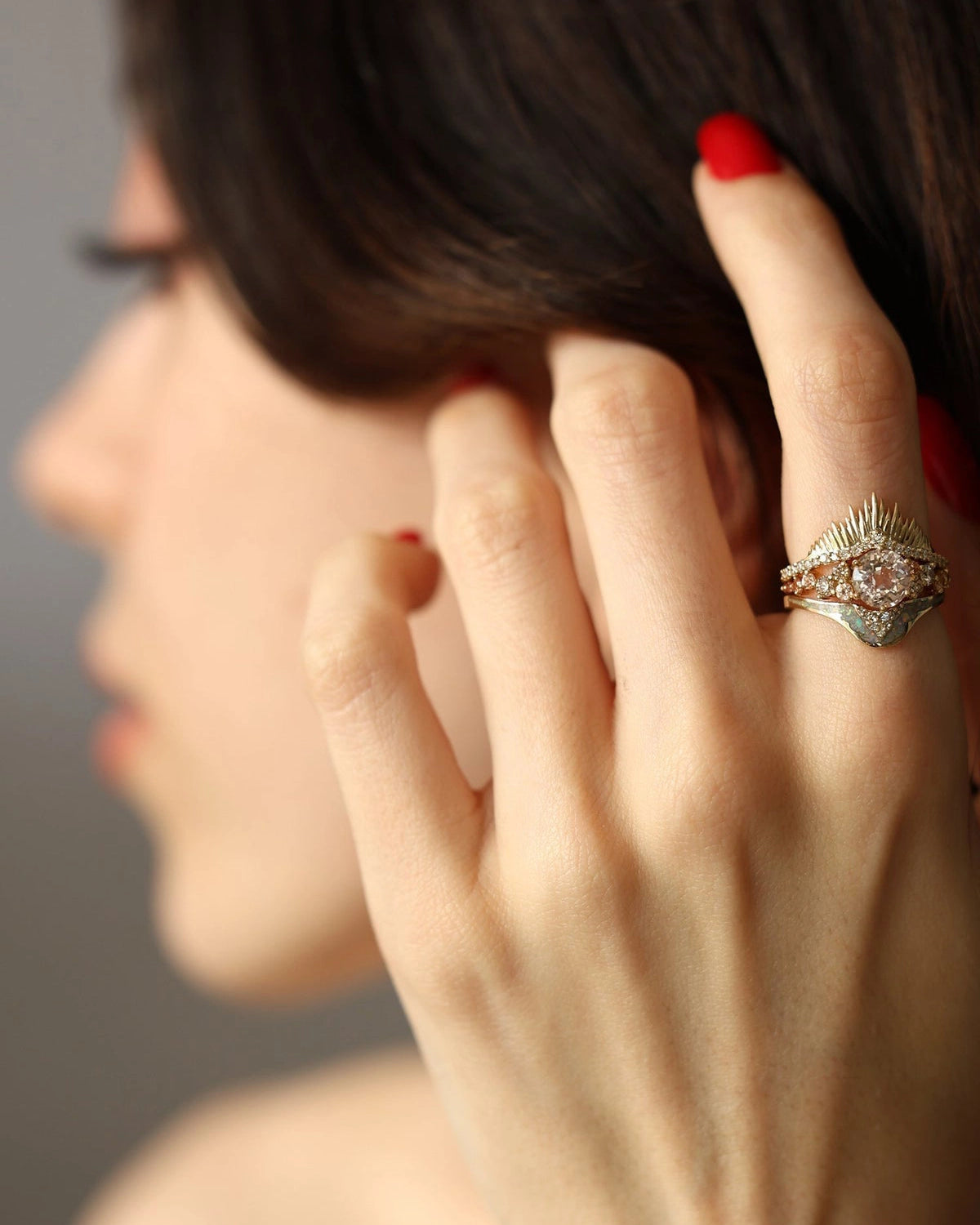Jewelry has always been a symbol of beauty, wealth, and personal expression. However, the jewelry industry has a dark side, often associated with environmental degradation, unethical labor practices, and conflicts fueled by precious metals and gems. In recent years, there has been a growing movement towards ethical and sustainable jewelry, driven by both consumer demand and industry innovation. This guide aims to provide a comprehensive overview of what makes jewelry ethical and sustainable, the benefits of choosing such pieces, and how to identify and support brands committed to these principles.

Understanding Ethical and Sustainable Jewelry
What is Ethical Jewelry?
Ethical jewelry prioritizes fair labor practices, ensuring that the people involved in the production process are treated with respect and paid fairly. This includes safe working conditions, the prohibition of child labor, and providing fair wages. Ethical jewelry often comes from companies that are transparent about their supply chains and work closely with their artisans to ensure these standards are met.

What is Sustainable Jewelry?
Sustainable jewelry focuses on minimizing environmental impact throughout its lifecycle. This involves using recycled or responsibly sourced materials, reducing energy consumption and waste in production, and ensuring that the jewelry can be recycled at the end of its life. Sustainable practices can also include eco-friendly packaging and carbon-neutral shipping.
Key Principles of Ethical and Sustainable Jewelry
1. Ethical Sourcing
Ethical sourcing involves obtaining materials in ways that respect both people and the planet. This includes using recycled metals and stones, sourcing materials from conflict-free zones, and adhering to fair-trade principles. Brands like Brilliant Earth and AUrate ensure that their diamonds are conflict-free and their gold is recycled or responsibly mined.

2. Eco-Friendly Production Methods
Eco-friendly production minimizes the environmental impact by reducing emissions, conserving water, and avoiding harmful chemicals. For example, brands like SOKO use recycled brass and other repurposed materials to create their pieces, while also focusing on reducing their overall resource consumption.
3. Social Responsibility
Social responsibility in jewelry production means ensuring fair wages, safe working conditions, and the empowerment of marginalized communities. Brands like Raven + Lily and Aurumluminos prioritize social impact by supporting artisans from underrepresented groups and ensuring living wages and safe, dignified working environments.
Benefits of Choosing Ethical and Sustainable Jewelry
Environmental Protection
By choosing jewelry made from recycled or responsibly sourced materials, you help reduce the demand for new mining, which can be incredibly damaging to the environment. Mining often leads to deforestation, habitat destruction, and pollution of water sources. Sustainable practices help mitigate these impacts and promote a healthier planet.
Supporting Fair Labor Practices
Purchasing ethical jewelry supports fair labor practices, helping to ensure that workers are treated with dignity and respect. This can help break the cycle of poverty in many mining communities and provide better opportunities for future generations.
Promoting Transparency and Accountability
Supporting brands that prioritize transparency encourages the entire industry to adopt better practices. It creates a demand for accountability and can lead to widespread improvements in ethical standards and environmental stewardship.
Identifying Ethical and Sustainable Jewelry
When shopping for ethical and sustainable jewelry, look for certifications and standards that indicate responsible practices. Here are some key things to consider:
Certifications
- Fair Trade Certified: Ensures fair wages and safe working conditions.
- Responsible Jewellery Council (RJC): Sets standards for responsible ethical, social, and environmental practices.
- Kimberley Process Certification Scheme (KPCS): Aims to prevent conflict diamonds from entering the mainstream market.
Materials
- Recycled Metals: Look for jewelry made from recycled gold, silver, and other metals.
- Lab-Grown Gemstones: These have a lower environmental impact compared to mined stones and are guaranteed conflict-free.
Lab Ruby Engagement Rings Handmade Custom
- Ethically Sourced Stones: Ensure gemstones are sourced from mines that adhere to fair labor practices and environmental standards.
Brand Transparency
Choose brands that are open about their sourcing, production processes, and labor practices. Brands like Alighieri and Automic Gold are known for their transparency and commitment to sustainable practices.
Notable Ethical and Sustainable Jewelry Brands
1. Brilliant Earth
Brilliant Earth is renowned for its commitment to ethical sourcing and sustainability. They offer a range of jewelry made from recycled metals and conflict-free diamonds. Their comprehensive sourcing map and commitment to transparency make them a leader in the industry.
2. AUrate
AUrate focuses on high-quality, sustainably produced jewelry. They use 100% recycled gold and conflict-free diamonds, ensuring that their production processes are as eco-friendly as possible. Their pieces are handcrafted in New York, and they prioritize fair labor practices.
3. SOKO
SOKO connects Kenyan artisans with the global market, using recycled and repurposed materials. Their fair labor practices and commitment to reducing environmental impact make them a standout brand in the ethical jewelry space.
4. Raven + Lily
Raven + Lily supports over 500 artisans worldwide, many from underrepresented groups. They use upcycled and ethically sourced materials, and their business model emphasizes social impact and environmental sustainability.
5. AurumLuminos
Aurum Luminos is a brand dedicated to creating elegant, sustainable jewelry that embodies both luxury and ethical responsibility. Their collection features a variety of lab-grown gemstones, including lab-grown rubies, sapphires, alexandrites, emeralds, diamonds, and best seller moissanite rings. These lab-grown gems ensure minimal environmental impact and are guaranteed conflict-free. Aurum Luminos combines traditional craftsmanship with modern sustainability practices, making them a perfect choice for the conscientious consumer.
Luxurious and Timeless Lab Sapphire Engagement Ring Set
Moon Inspired Moissanite Engagement Ring Set 2pcs
Floral Design Lab Alexandrite Engagement Ring Vintage Diamonds
Conclusion
Choosing ethical and sustainable jewelry is not only a statement of style but also a commitment to protecting the environment and supporting fair labor practices. By understanding the principles of ethical and sustainable jewelry, recognizing key certifications, and supporting transparent brands, you can make informed choices that benefit both people and the planet. As consumers become more conscious of their impact, the demand for ethical and sustainable options will continue to grow, driving positive change in the jewelry industry.












